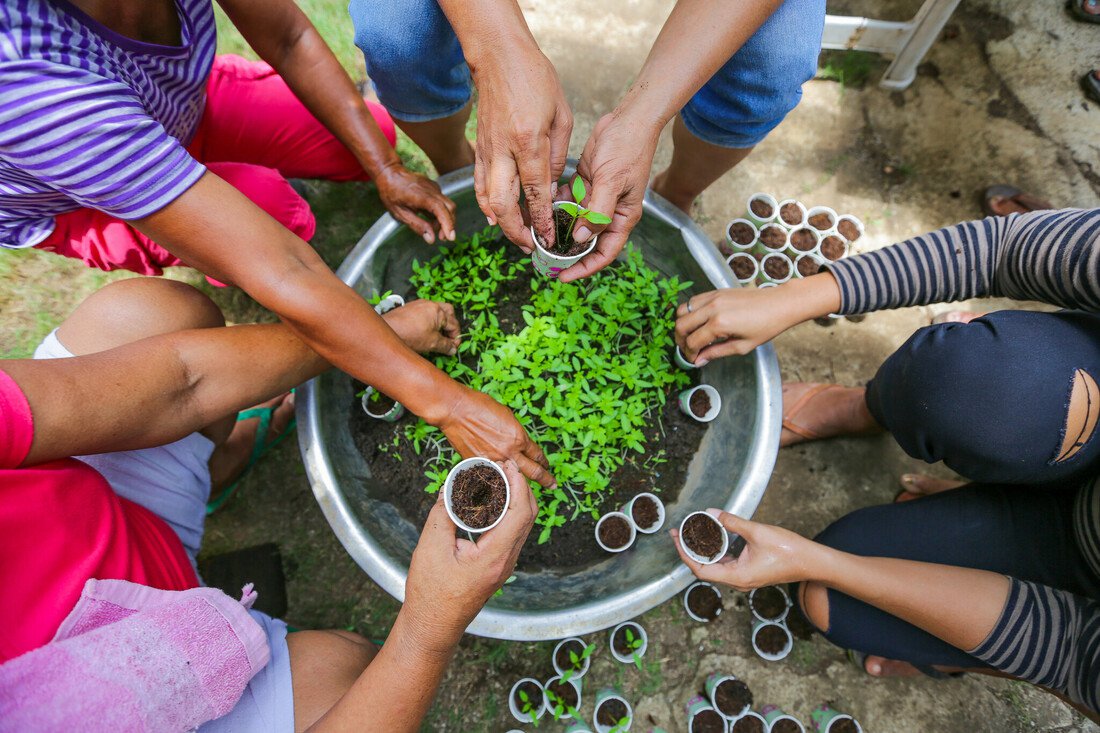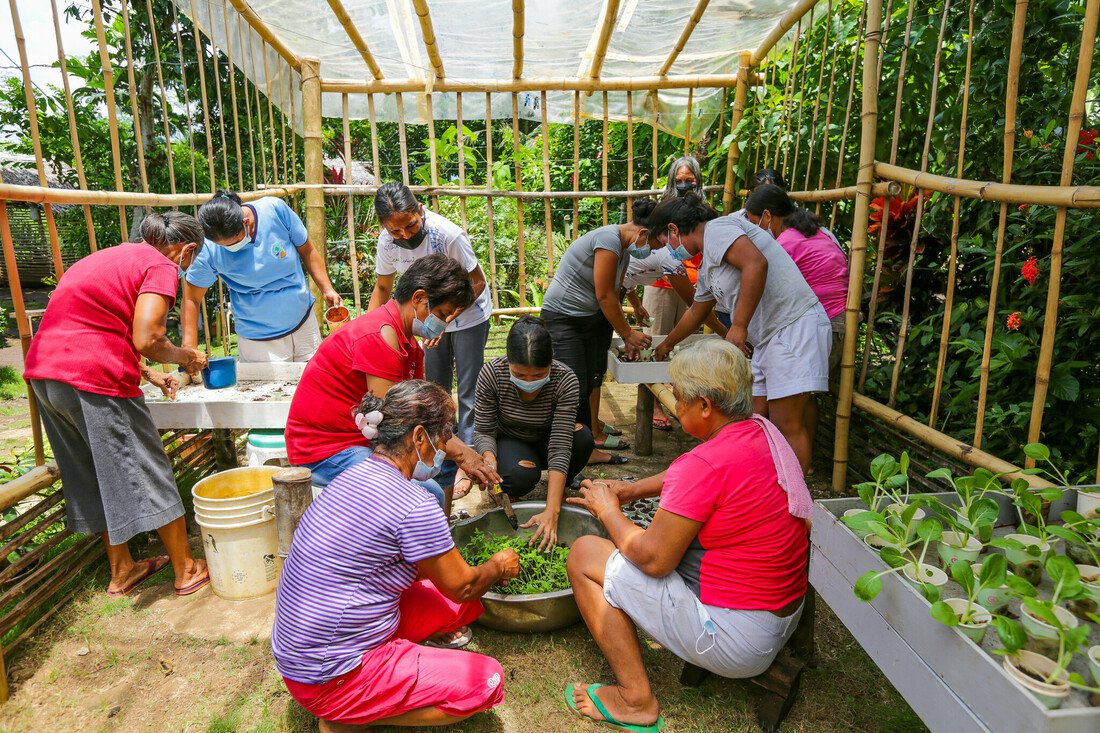In the Philippines, Lilia Godoy and others in her village learn hydroponic farming in order to adapt to climate change.
Lilia Godoy, 63, lives in the village of Carangcang in the Philippines, which was devastated by Typhoon Goni in the fall of 2020.
“Many houses here were destroyed. It’s sad to say that due to the lack of resources and... livelihood, [our neighbor’s] house still has no roof,” Godoy says. “And there are still many like them who have not recovered yet.”
Typhoons like the one that hit Godoy’s village are a common occurrence in the Philippines, and in large part due to climate change, these storms have grown in severity and frequency. Because of global inequality, Carangcang and villages like it, struggle to bounce back after these severe weather events. “Our plants and produce were also affected,” says Godoy. “Every time there is a typhoon, recovery takes at least three months. We work hard because not to do so would mean we lose a living.”
As communities around the world face worsening climate impacts, it is more important than ever that we invest in resiliency so that Lilia and people like her have what they need to adapt to the changing climate.

Resilient Farming
After Typhoon Goni, Rice Watch Action Network (RWAN) approached community leaders in Carangcang with the offer to help them get started with growing vegetables hydroponically (without soil) through a project funded by Oxfam Pilipinas. In conceptualizing this project with Oxfam, RWAN considered how farmers could participate in cooperative farmer-to-farmer responses to climate change.
“Our problem was that if we were to give seeds to the farmers…we would buy a lot of seeds from the company and then allocate and distribute it. That’s the easiest way to do it,” said Hazel Tanchuling, the executive director of RWAN. “But what we wanted was to make the response more sustainable with a lasting impact on the farmers.”
So instead of distributing seeds, RWAN and Oxfam distributed seedlings. This way, not only would the community have seeds, but they also had the ability to grow plants that could supply seeds to other farmers.
To jumpstart the seedling enterprise, RWAN trained community members in hydroponic methods and business skills, and worked with community members to monitor and evaluate the seedlings’ growth and success. Communities around Carangcang now sell and trade the locally-grown seedlings, true to RWAN’s vision of having a sustainable farmer-to-farmer response system. These seedlings are also easily transportable, so when typhoons do come, the hydroponic nurseries can be quickly moved and stored in a safer place in anticipation of a storm.
This approach was very popular with the people of Carangcang. Though not a farmer herself, Godoy, upon hearing this proposition, did not hesitate to say ‘yes’ to the opportunity to work with her community to learn these skills and earn more income. She joined with others in her area, some who were lifelong farmers and others who were new to it, to participate in this project. Now, they supply seedlings to farmers from other neighboring villages, while also earning additional income by selling their seedlings online, and they teach other farmers how to hydroponically grow produce as well.

Investing in Resiliency and Adaptation
The tragedy that hit Godoy and her village of Carangcang is just one example of the reality that communities all over the world are facing. Whether it’s a typhoon in the Philippines, a cyclone in Mozambique, drought in Kenya, or a hurricane in Louisiana, the impacts of climate change are far reaching. It’s time for governments’ responses to match the seriousness of the crisis.
As world leaders gather at COP26 in Glasgow, we are asking President Biden and other world leaders to urgently invest in the resilience of those who have done the least to drive the climate crisis but are facing the worst impacts. We must ensure that the $100 billion that wealthy countries, who are responsible for the vast majority of climate pollution, have pledged in financing to poor countries goes to adaptation that meets the self-determined needs of local communities, like Lilia’s, as well as helping governments meet their own climate goals.
The time for climate action is now. Join us in solidarity with those facing the worst impacts of climate change around the world and demand that President Biden take action on his commitments.
